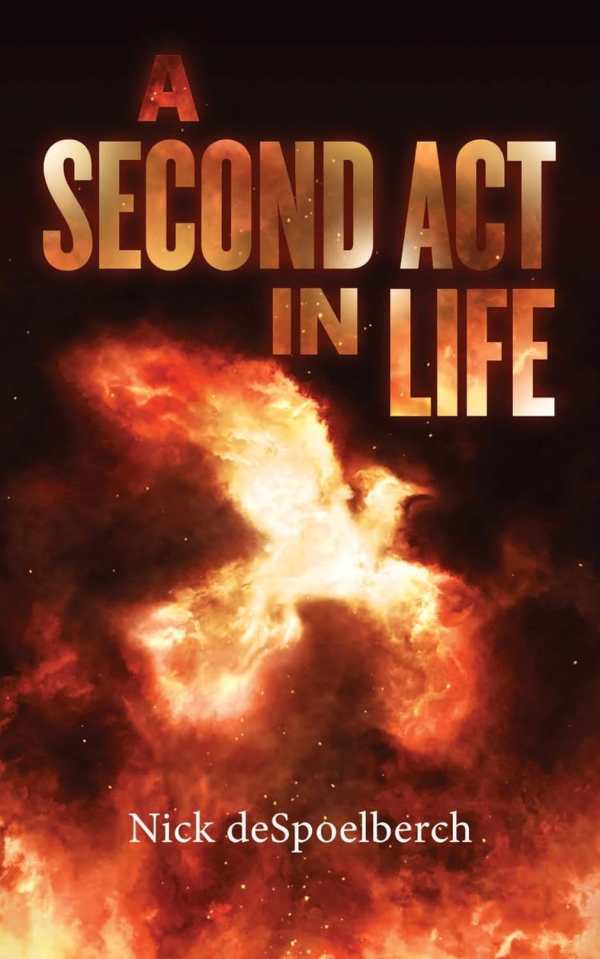A Second Act in Life
A Second Act in Life is an earnest guidebook with advice for slowing down, resetting, and finding the spirit within oneself.
Recovering addict Nick deSpoelberch’s memoir-cum-self-help book A Second Act in Life is about struggling to change one’s self-perception.
DeSpoelberch has experience in recovering from social ruin. Having worked through several addictions, he draws from personal experience throughout. He recalls how, after viewing an inspirational scene in Braveheart, he vowed not to lose heart. After achieving success in his own recovery process, he set up a private practice dedicated to helping fellow addicts too.
In addition to its personal story, the book also incorporates the anecdotes of several other people to support its claims, including the story of a man who lost a child, became addicted to heroin, and still wound up being the nicest person deSpoelberch ever met. Historical figures are also referenced—including Carl Jung and Abraham Lincoln, who overcame their personal struggles in a way that the book says people today can learn from.
Still, the vast majority of the book speaks to deSpoelberch’s own experiences alone, recalling how he fought to pick something worth living for. Though he makes note of his privileged background, his voice is measured and empathetic to all. He recalls meeting and connecting with people facing tremendous economic, legal, housing, and mental health issues. All of them are credited with influencing his multipronged exercises for recovery from a variety of social pitfalls. Related questionnaires and exercises appear throughout, with space made for filling in answers or jotting down takeaway concepts like the place, job, or relationship that affects one’s personal energy and growth the most.
The book is enlivened by colorful metaphors for hypothetical obstacles: an assassin is used to represent impostor syndrome, for example, as they are able to shoot down all signs of mental progress. Recommendations for combating such forces are included as well, as with the question, “What would it be like if that voice were positive?” But the book is also prone to repeating ideas to the detriment of their persuasiveness, as with its reminders that being resilient means becoming impervious to discouraging pronouncements and relapses and being open to change and hope. Further, beyond a few footnotes, the book’s references are limited; it lists no sources at its end, calling into question the general validity of its proposed methods.
An insightful memoir about recovery and transformation, A Second Act in Life makes useful recommendations for restarting one’s adulthood.
Reviewed by
Stephanie Marrie
Disclosure: This article is not an endorsement, but a review. The publisher of this book provided free copies of the book and paid a small fee to have their book reviewed by a professional reviewer. Foreword Reviews and Clarion Reviews make no guarantee that the publisher will receive a positive review. Foreword Magazine, Inc. is disclosing this in accordance with the Federal Trade Commission’s 16 CFR, Part 255.

